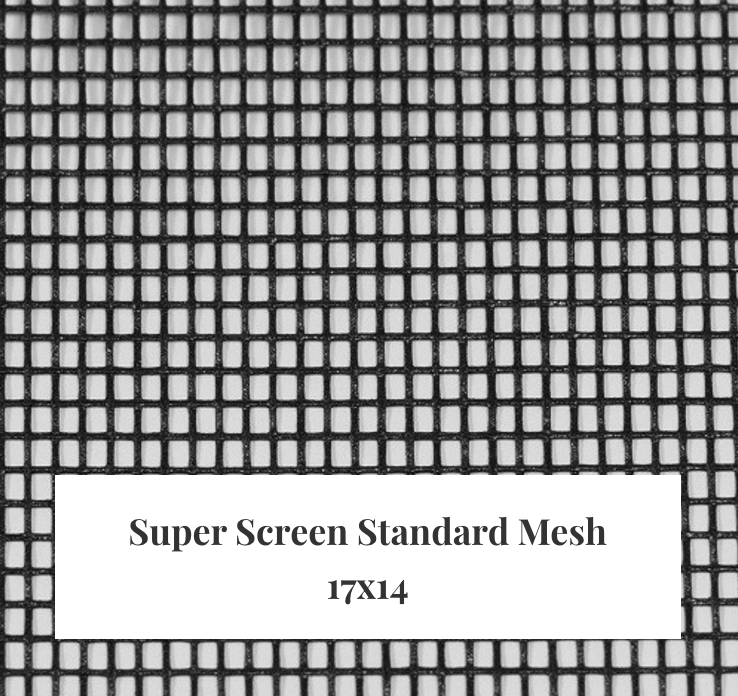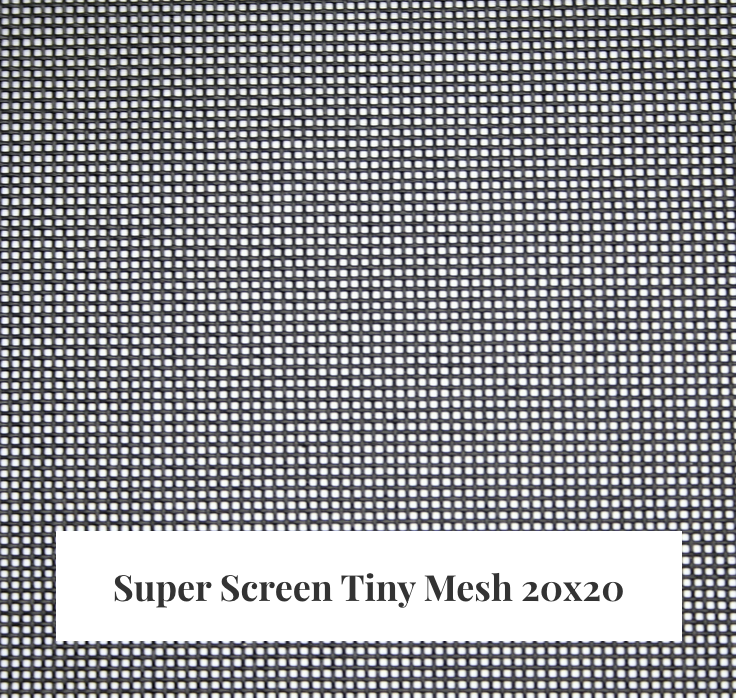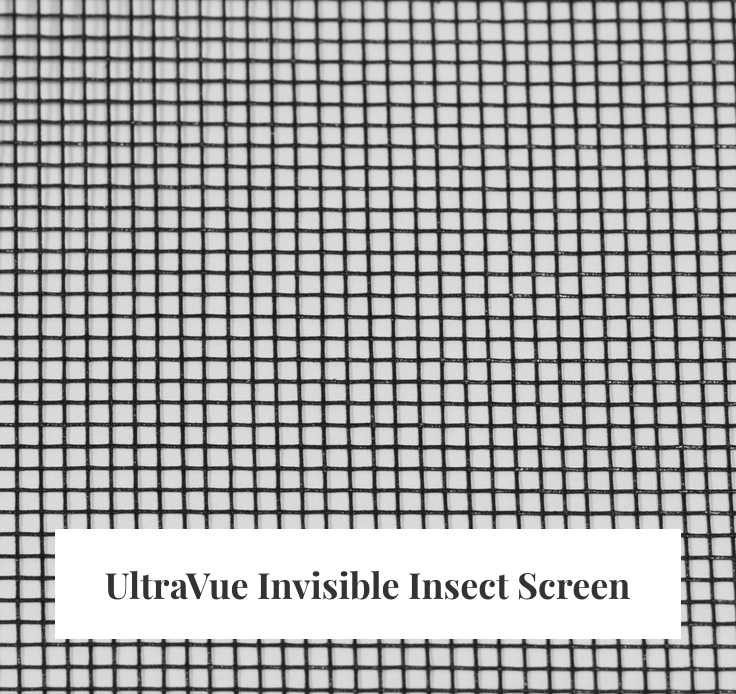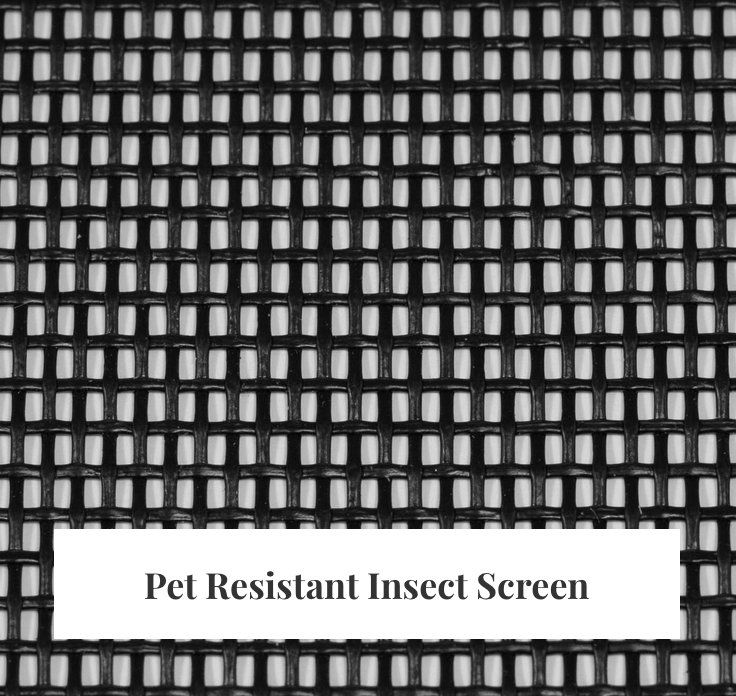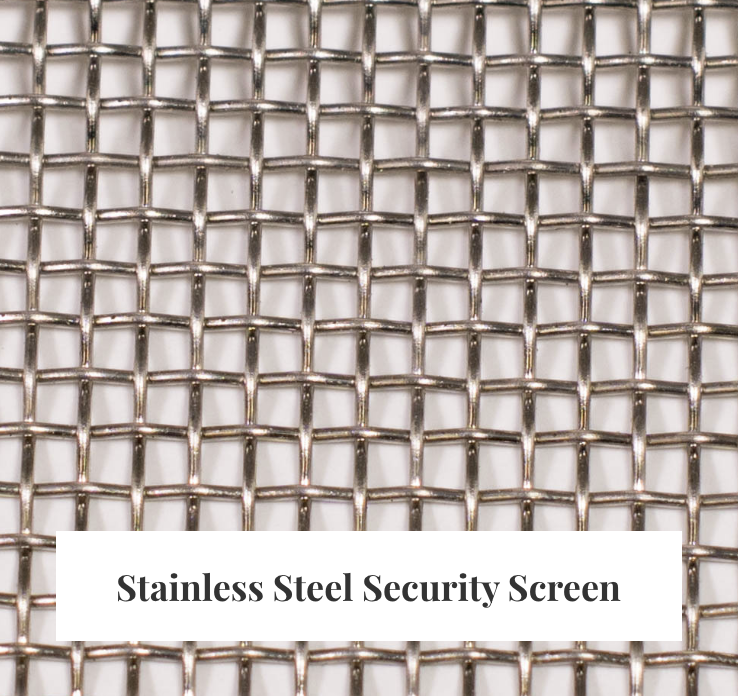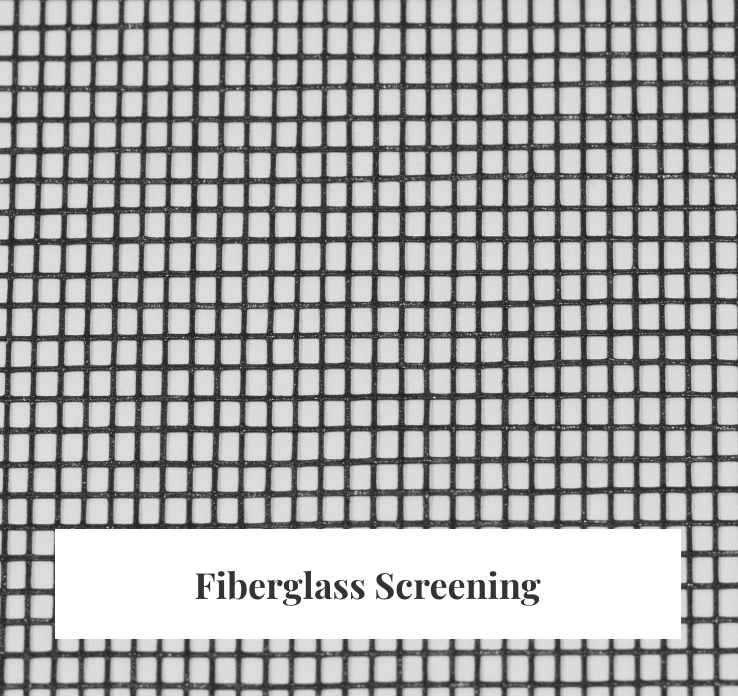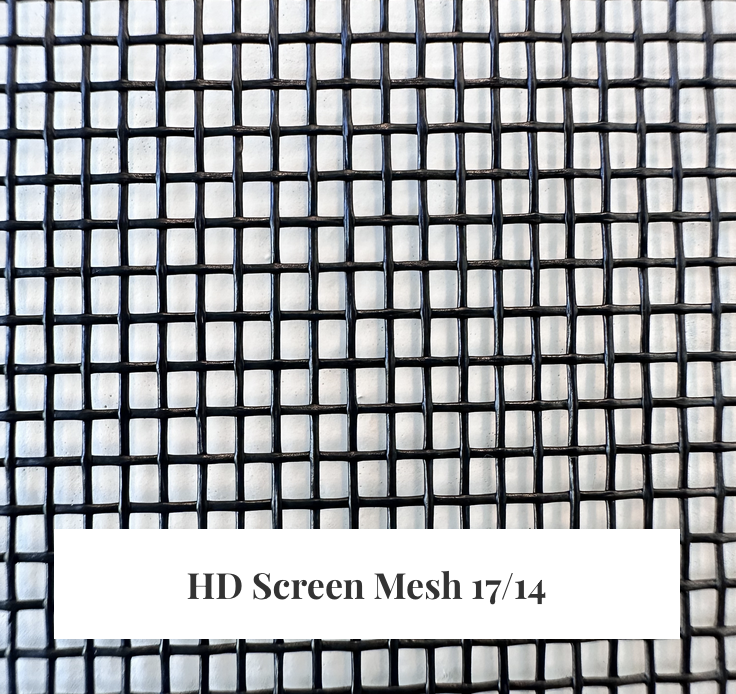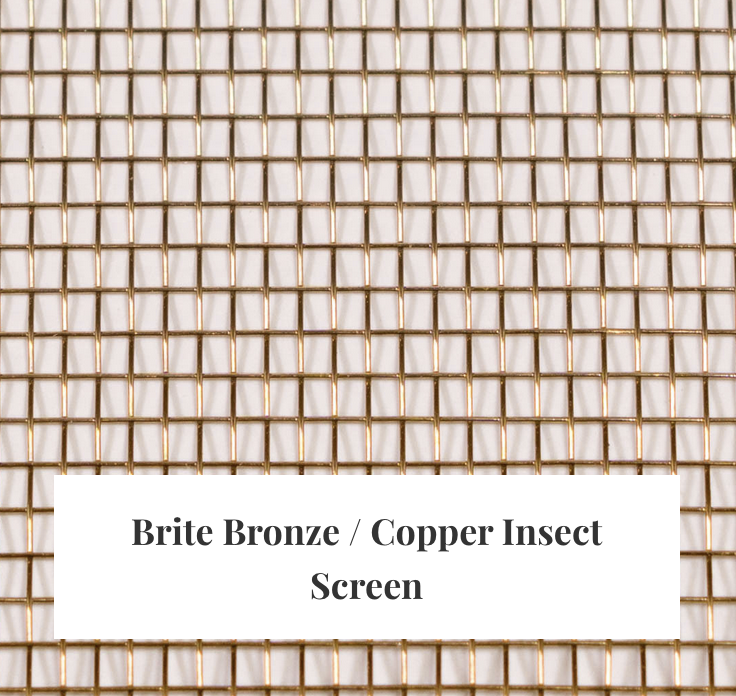Posted by Metro Screenworks on Oct 18th 2024
A Guide to All Types of Screen Mesh
Replacing your window screens may seem like a simple enough task. But, once you start researching your purchase, there are just so many types of window screen mesh to choose from. It can be difficult to tell one screen mesh type from another. That's why we've created this guide to understanding screen mesh specifications.
Screen Mesh is not a one-size-fits all product for every project. Depending on your needs, screen mesh can have different Mesh Counts, Wire Diameters, and Mesh Material. These specifications determine a screen's level of insect protection, visibility, durability, and overall look once installed.
Understanding Mesh Count: 17x14 vs 20x17 vs 20x20
If you've spent time on our website, you've probably noticed that many screens have numbers like "17x14" or "20x20" in their name. These numbers are what we call Mesh Count (also known as mesh size). Most standard screens have a mesh count of 17x14 – meaning that every square inch of screen has 17 horizontal strands and 14 vertical strands. This means that the higher the numbers in the mesh count, the tighter the weave.
A 17x14 mesh is tight enough keep out most insects such as mosquitos, but tiny insects like no-see-ums can get through. So if you're need a type of patio screen mesh to block out tiny insects like no-see-ums, you would want 20x20 mesh count. Our tightest weave is on our Solar Insect Screen with a mesh count of 20x30.
Understanding Wire Diameter
Another important factor to consider when choosing a screen mesh is Wire Diameter. While mesh count determines how tightness of the weave, wire diameter determines the thickness each individual strand. Wire diameter can be a major factor in a screen's relative visibility and durability.
For example, UltraVue Screen has a thin wire diameter, and offers the best visibility in our catalogue. Pet Screen by contrast has a thicker wire diameter. And while Pet Screen doesn't provide the same visibility as UltraVue, it is much more durable. Our Stainless Steel Security Screen is our strongest screen, with a wire diameter of 0.023 inches.
Understanding Screen Mesh Material
Screen Mesh Material is another important factor impacting a screen's cost, durability, and ideal use case. Standard screens are made from Fiberglass Mesh. And while fiberglass is a cost effective window screening material, it breaks down quickly and needs more frequent replacement.
By contrast, Our HD Screen Mesh is made from a sturdy vinyl-coated polyester. Polyester screens are more than 3x stronger than standard fiberglass. The screen mesh material can also affect the way the screens look. Our Brite Bronze Screen Mesh is made of 90% Copper, 10% Zinc, adding an elegant look to porch screen enclosures.
A screen's mesh material can also completely change its functionality. For example, Solar Screens are designed to block the sun's heat, glare, and UV rays. And, our Stainless Steel SeeVue Screens provide excellent outward visibility.
Need Help Choosing a Screen? Talk to Our Team And Get A Quote Today
If you have any questions about which screen product is right for you, don't hesitate to reach out to our team. Call 1-800-413-2579 or email sales@metroscreenworks.com and we will help you order your replacement screens today. Metro Screenworks is your source for window screens, screen doors, and all types of screening materials!


